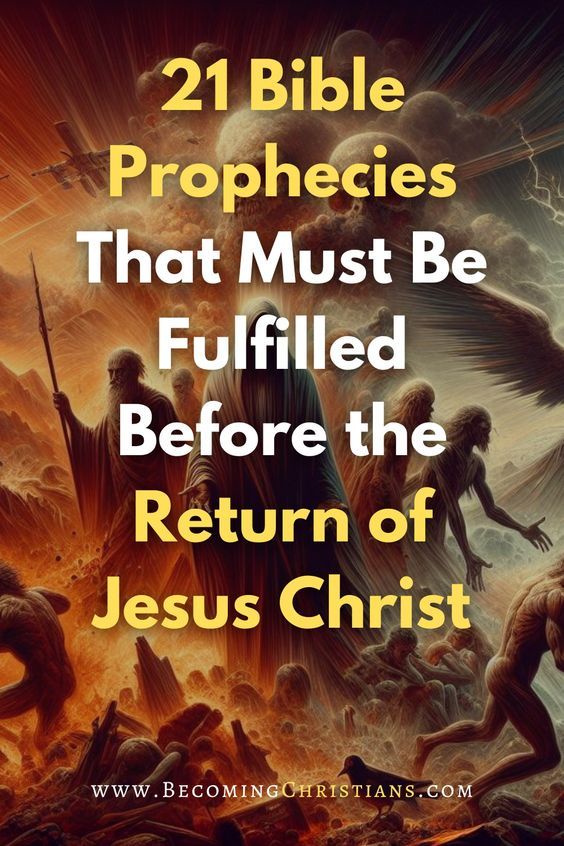The concept of the Paraclete, originating from Biblical scriptures, signifies the promise of divine assistance bestowed upon humanity. Within the Bahá’í Faith, this figure is interpreted as a harbinger of spiritual enlightenment and guidance, manifesting through the lives and teachings of prophetic figures. This exploration elucidates the Bahá’í perspective on the Paraclete prophecies, particularly focusing on their fulfillment through Bahá’u’lláh, the founder of the Bahá’í Faith. Below is a comprehensive examination of this significant topic.
1. Understanding the Paraclete: Scriptural Foundations
In Christian theology, the term ‘Paraclete’ refers to the Holy Spirit, a comforter and advocate promised by Jesus to guide His followers. It is derived from the Greek word ‘parakletos,’ which can be translated as ‘one who is called to the side of another’—an advocate or helper. In John 14:16-17, Jesus assures His disciples of the coming of this comforting spirit. Bahá’ís view this promise as a continuous revelation of truth to humanity, evolving through successive prophets, each embodying the role of the Paraclete in their biblical epochs.
2. The Role of Prophets in Bahá’í Belief
Central to Bahá’í teachings is the belief in the Manifestations of God—divine educators who emerge throughout history to renew spiritual teachings in accordance with humanity’s capacity for understanding. These figures include Moses, Jesus, Muhammad, and recently, Bahá’u’lláh. Each is seen as a part of an unbroken chain of divine guidance that culminates in, according to the Bahá’í Faith, the revelation of Bahá’u’lláh as the latest and most complete embodiment of divine will.
3. Bahá’u’lláh: The Fulfillment of Prophecy
Bahá’u’lláh boldly asserts that he is the fulfillment of the Paraclete promise. He presents his teachings as the culmination of the prophetic tradition. This fulfillment is elucidated in the context of various scriptural prophecies, including those from the Bible and the Báb—Bahá’u’lláh’s forerunner. Bahá’í writings declare that the coming of Bahá’u’lláh signifies an era of universal peace, unity, and spiritual awakening.
4. The Unity of All Religions
In elucidating the Paraclete prophecies, Bahá’í teachings uphold the principle of the unity of all religions. Each religious tradition is seen as a progression, revealing divine truths pertinent to its time. This progressive revelation asserts that previous revelations such as that of Christ prepare humanity for Bahá’u’lláh’s teachings, thus showcasing the interconnectedness of the myriad faiths throughout history.
5. The Concept of the ‘Return’
Within Christianity, the ‘Return’ of Christ is a pivotal theme, often elaborated upon through eschatological narratives. Bahá’í texts interpret the ‘Return’ not as a second coming in a corporeal sense but as a spiritual return materialized through Bahá’u’lláh’s revelation. This reinterpretation encapsulates the prediction of the Paraclete’s coming, illustrating how past prophecies resonate within the framework of Bahá’í teachings.
6. Relationship Between Humanity and the Divine
The Bahá’í understanding of the relationship between humanity and the divine is deeply intertwined with the role of the Paraclete. Through the teachings of Bahá’u’lláh, believers are encouraged to foster a direct relationship with God, emphasizing personal prayer, meditation, and service to humanity. This personal connection is viewed as a pathway to understanding and utilizing the guidance offered by the Paraclete.
7. The Role of World Peace and Justice
Bahá’u’lláh’s teachings extend the role of the Paraclete to encompass social and global evolution. The fulfillment of Paraclete prophecies underlines a commitment to world peace and justice, which are paramount objectives in the Bahá’í worldview. Every believer is tasked with the responsibility of contributing to the establishment of a global community grounded in unity, compassion, and collaboration.
8. The Prominence of Universal Education
Another critical aspect of Bahá’í teachings regarding the Paraclete prophecies emphasizes the essence of education. Bahá’u’lláh posited that education is the chief instrument for achieving universal harmony and progress, thereby enabling individuals to better understand and embody divine guidance. This educational imperative is vital for fostering a well-informed citizenry capable of embracing and applying the teachings of Bahá’u’lláh in a practical manner.
9. The Prophecies in Contemporary Contexts
Interpreting the Paraclete prophecies in modern society brings to light critical dialogues around moral and ethical issues faced globally. As the world grapples with issues such as inequality, conflict, and environmental degradation, Bahá’í teachings serve as a source of hope and guidance, reaffirming that the fulfillment of divine prophecies resonates in today’s challenges and aspirations.
10. Conclusion: A Journey of Realization
The Bahá’í view of the Paraclete prophecies invites a deeper exploration of humanity’s spiritual journey, underscoring the significance of recognizing the divine guidance proffered throughout the ages. In acknowledging Bahá’u’lláh as the Paraclete, believers are encouraged to embrace the transformative power of faith. The teachings serve as an invitation to cultivate a more profound relationship with the divine and, in turn, contribute toward a more harmonious global society. This journey towards realization of truth is not merely an individual endeavor but a collective task—one that beckons for unity, love, and steadfast commitment to the ideals promulgated by Bahá’u’lláh.
